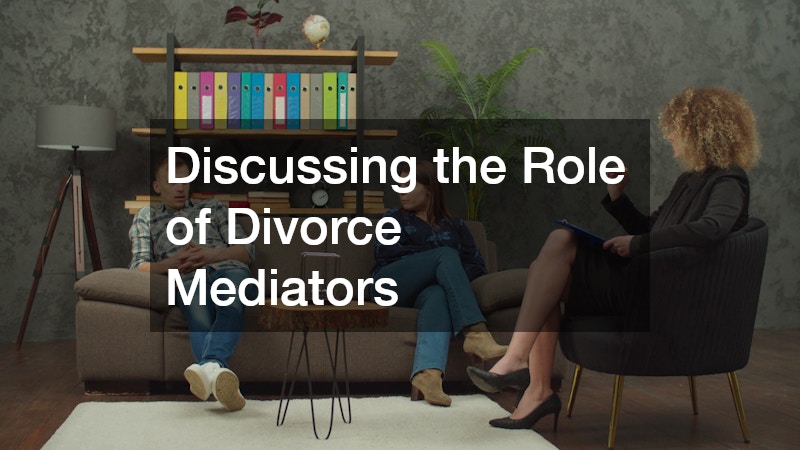
Divorce mediators play a crucial role in guiding couples through the emotionally and legally complex process of marital separation. Mediation fosters open communication, mutual respect, and collaborative problem-solving, unlike adversarial courtroom battles. Mediators act as neutral third parties who help both individuals reach fair and balanced agreements on key issues such as property division, child custody, and financial support.
Video Source
This article explores the importance of divorce mediators by examining their responsibilities, the advantages of choosing mediation over litigation, and their overall impact on divorcing couples. From reducing emotional stress and legal expenses to promoting more sustainable agreements, mediation offers a constructive alternative to traditional divorce proceedings. Couples can better evaluate whether this approach aligns with their goals and circumstances by gaining a clearer understanding of the mediator's role.
A divorce mediator is an impartial third party who assists couples in navigating the complexities of separation. They are dedicated to fostering a cooperative environment where both parties feel heard and understood. The mediator’s primary responsibility is facilitating communication between the divorcing couple, ensuring that each side can express their concerns and preferences openly.
Additionally, divorce mediators propose solutions that address the key issues in a divorce, such as asset division, child custody, and support arrangements. Their guidance often includes offering possible solutions and helping the couple weigh the potential outcomes. Importantly, divorce mediators are bound by ethical considerations, such as maintaining confidentiality and neutrality throughout the mediation process.
This means that all discussions held during mediation are private and cannot be used in court if the mediation does not result in a settlement. The ethical framework ensures that mediators do not favor one party over the other, reinforcing their role as unbiased facilitators. Moreover, mediators must be cautious about power imbalances and ensure that both parties have an equitable opportunity to contribute to the discussions.
Divorce mediation offers a more private and less adversarial alternative to traditional court proceedings. One of the main advantages of mediation is that it is typically quicker and less costly than going to court. Mediation sessions can be scheduled at the convenience of both parties, allowing for a more flexible process.
Another significant benefit is that mediation emphasizes collaboration, which can lead to better post-divorce relationships, which is especially important when children are involved. By fostering a joint problem-solving approach, divorcing couples can create customized solutions tailored to their unique situation. Despite these advantages, mediation requires both parties to be willing to cooperate and communicate openly, which may not always be possible.
If there is a significant power imbalance between the parties or a history of abuse, mediation might not be appropriate. In such cases, the imbalance could prevent fair negotiations, leading to one party dominating the discussions. Therefore, it is crucial for both participants to feel safe and supported throughout the mediation process to achieve a truly fair outcome.
Couples should consider a divorce mediator when both parties are open to discussion and compromise. Mediation can be highly effective if both partners acknowledge the need for separation and are willing to work together for a mutually agreeable solution. The willingness of both parties to engage in honest dialogue is a key indicator that mediation may be successful.
The timing of seeking mediation services will vary based on the couple’s circumstances; however, earlier intervention can often lead to more amicable resolutions. Starting the mediation process at the earliest signs of conflict can prevent further relationship deterioration. Early mediation can help establish a respectful framework for resolving future disagreements, contributing to a smoother transition.
For many couples, mediation can help minimize conflicts and reduce the emotional toll of a lengthy court battle. By engaging a mediator before taking legal action, couples can preserve more control over their future arrangements. Considering the mediator's ability to provide a structured yet flexible process, couples can more efficiently navigate divorce's emotional and logistical complexities.
Divorce mediators provide an invaluable service by helping couples reach mutually agreeable solutions outside the courtroom. By understanding the role and benefits and ideally timing their engagement, couples can better navigate the emotional and logistical complexities of divorce, ensuring a more respectful and effective separation process. With the assistance of a skilled mediator, divorcing couples can find creative and constructive solutions, maintaining control over their lives and the decisions that affect them most.
.